We’ve been in a climate emergency.
Most of 2020 and all of 2021, so far, has taught us what it looks like to act in another emergency. People did not and are not getting it right all of the time, but it’s undeniable that there has been action. The mobilization to get a vaccine was amazing — within one year of the first documented Covid-19 transmission, a vaccine became available to the public. Quickly, scientists developed others. Even as anti-vaxxers and “the vaccine hesitant” are dragging their feet when it comes to ensuring the health of their families and the community, there is progress. All you need to do is look at the reduction in the death rate. Yet, there is bitterness when we consider how many lives could have been saved had political leaders acted sooner, letting science — not the selfishness of ego — guide their decisions.
We’re in, and have been in, a climate emergency. This is not a cute moment of hugging trees while burning incense. It’s a matter of sustaining the planet, because without a habitat, human life is endangered.
As Abigail Dillen puts it in “Litigating in a Time of Crisis,” — published in All We Can Save — “It’s a profound kind of entitlement to believe, despite all evidence to the contrary, that we can go on living as we are.”
As with Covid, there are technological solutions (vaccines) and natural ones (isolation, physical distance, basic hygiene); technology alone is not a silver bullet solution, even if those benefitting financially would claim them to be. Just as we can’t bring back those who died preventable deaths from Covid-19, we can’t fully repair the damage to the planet; however, we absolutely have the capacity to act so that the planet continues to sustain human life.
To save you some time, I’ve labeled each suggestion so that you can choose ideas that best fit where you’re at, either in level of commitment or personality:
🌍 = Large impact, most bang for your buck.
❄️ = Individual
🌈 = In community
💧 = Nurturing
🌲 = Fighting
📚 = Learning
🌻 = Creating
☎️ = Organizing
♻ = Idea recycled from last year
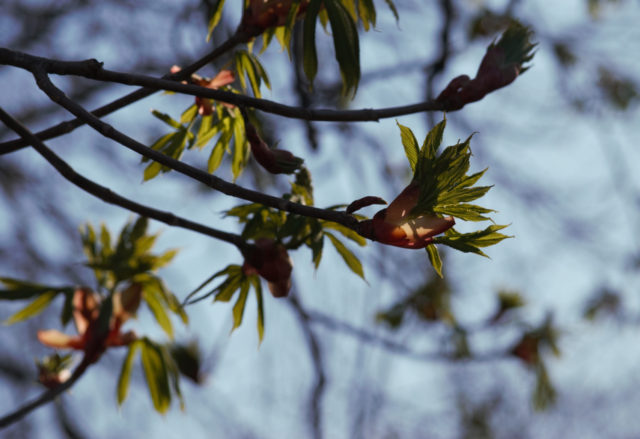
- Ditch the Car 🌍❄️
Again and again and again people want to know what actions they can take as an individual that will have the most impact when it comes to reducing carbon emissions. The answer is not switch from plastic straws (but you should do that too). It’s the things people often don’t want to hear and will make up a million excuses why they won’t make these changes: eat a plant-based diet, avoid air travel, ditch the car, and have fewer children. What’s interesting is how all of those actions require going against the grain in a very particular way: dismissing outward status symbols.
The middle-of-the-road approach is to suggest that a household limit itself to one car; the badass radical approach is to challenge needing even that much. Reducing automobile dependence also saves money. Sit down and do the math. How much does it cost to legally own and operate a car every year in Connecticut? Then, see how much it costs to get around by bicycle or on foot, or by bus and train. Even if you rent a car every now and then, the savings are substantial — particularly for those of us who are working class.
- And then ditch bad laws ♻🌍❄️🌈🌲📚☎️
Our car-centric culture is not healthy for people or the planet. Begin to fix this by learning about how our current policy is problematic; then work to change it. Transportation, housing, environment, economy — these issues are all linked. You will see how “maintaining our way of life” — a racist dog whistle used in a few very racially segregated suburbs and exurbs — has been used to block both affordable housing and stall or minimize public transportation. Luckily, problems created by humans can also be solved by humans. If you can address multiple problems at once, why wouldn’t you?
Demand your community become more livable by putting people first. Walkable cities have wide sidewalks, robust transit, and safe and efficient pedestrian crossings. How do you get these things? Start by using 311. Plug info into the Bike Lane Uprising app. Participate in the monthly Complete Streets meeting. Contact your elected officials. Get creative if you feel unheard. Are they giving you bullshit excuses for why something can’t happen? Talk back. It’s amazing the results you can get if even a few people try. Looking for a place to start? Contact you legislators in support of H.B. 5429, and if you have a #BlackLivesMatter sign on your lawn, you should absolutely be stepping up to support a measure that would also reduce traffic stops while making the streets safer for pedestrians and cyclists.
- Get On The Bus ❄️🌈
No more excuses! From Memorial Day through Labor Day this year, it will be free to take CTtransit anywhere in Connecticut on the weekend, the Monday after Independence Day, and those Monday holidays bookending this public transit bonanza. Want to take a hike? Take the bus. Want to take your newly vaccinated self to visit friends? Take the bus. Have you been bus-curious but afraid to try for the first time while on a tight schedule? Try it on the weekend. Thinking of ditching your car but wondering “how will I get groceries” — take the bus. It’s amazing how many things we’ve been socialized to believe are impossible, when in fact they are simply not that hard.
- Saddle Up 🌍❄️🌈🌲
But then advocate to make roads safer. Why? Two reasons: (1) the people who are already biking, and (2) the people who would ride if they felt like it wouldn’t kill them. There are various organizations out there already doing the work — no need to remake the wheel. Bike Walk Connecticut is the statewide organization. Safe Streets Coalition of New Haven has been doing impressive work down that way. As Project Drawdown explains, “additional benefits of cycling include improved health and lower health care expenses.” This holds true for e-bikes as well, because exercise is still required to get them to move. Again, if you can solve multiple problems at once, why wouldn’t you?
- Demand a Reframe 🌍❄️🌲☎️
Politicians and some organizations are resisting extending CHEAPR incentives to cover e-bikes, and that’s because. . . well, they’d have to be real honest about why that is, but I have guesses. One guess is that they do not understand poverty. Another guess is they aren’t paying attention to what experts have to say. Another is that they see bikes as toys, not tools. But e-bikes should not be viewed as just upgrades to analog bikes; they can and should often be viewed as replacements for cars. Broaden your perspective and then ask your reps and environment orgs to get with the program. Feel free calling folks out for pushing a scarcity model: their campaign is not going to lose if they make it more inclusive. By the way, France is swapping out fossil fueled cars for e-bikes.
- Better Yet, Screw EV Subsidies. Get Us A Carbon Tax 🌍❄️🌲☎️
As the late Jim Pagels explains, “subsidizing EVs is an odd policy stance, since negative externalities (which EVs most certainly produce in enormous quantities) should be taxed, not subsidized.” If you want to ruffle some feathers, suggest to legislators that this is the better route. Feeling judged? Too damn bad. This is about habitat preservation.
- Scoot Over! ❄️
Hartford now has electric scooter rentals, which is a good solution for some of us who aren’t yet fully vaccinated and want to stay off buses, but need to go longer distances — like to inconveniently located vaccination clinics.
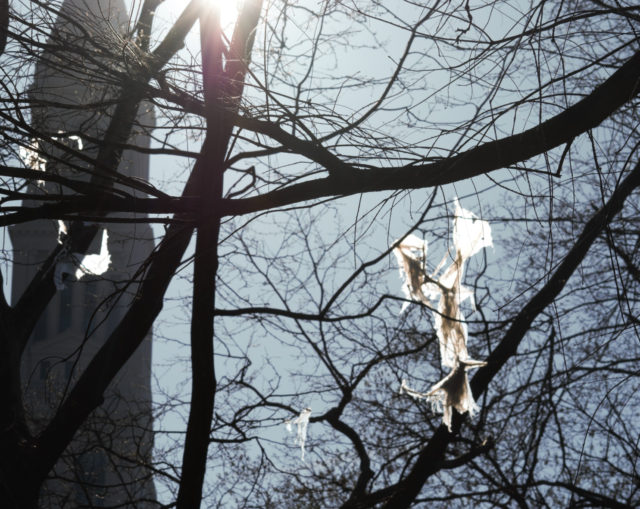
- Eat Local ♻❄️💧🌻
…as much as possible. Got a choice between New England apples and Washington apples? Choose those that have not traveled so far. Grow your own herbs and vegetables. There are community garden plots you can rent for a season — convenient for those who have no yard, have a yard but aren’t allowed to modify it, or whose soil is only suitable for growing things you won’t be putting in your mouth. KNOX is the main organization that runs community gardens in Hartford, but there are others. Talk to your neighbors to find out other options.
- Donate Local ❄️🌈💧
If inclined to donate money or food to large distribution programs, consider something more homegrown, more accessible instead. Hartford has a number of 24/7 help yourself pantries. These do not require a person have a car to get to one of those exclusive “drive-thru only” food distribution events– you know, the ones where pedestrians are not served and would struggle to reach anyway. These 24/7 pantries do not require a person go across town to stand in a line because of a time limited distribution scheme. Little Free Pantries (or whatever you feel like calling them) are sites where you can drop off food whenever. Consider leaving surplus from your garden. While the traditional pantries typically only accept non-perishable foods, these 24/7 pantries receive so much foot traffic that there’s more flexibility, and some have coolers or refrigeration systems. See this map to learn where these are in Hartford — look for the noodle bowl emoji.
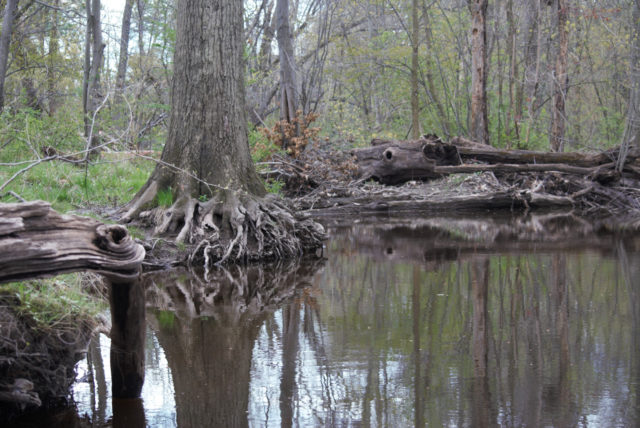
- Use a Rain Barrel ♻❄️💧
While the MDC maintains its recreation areas well, they’re sketchy AF as far as I’m concerned after getting into the water privatization/bottling business. Gross. A rain barrel collects water that falls from the sky so you can water your garden without paying anything to the water company. (There’s a local rain barrel sale on April 24)
- Do local volunteer work ♻🌍🌈💧🌲
Keney Park Sustainability Project, KNOX, the regional Connecticut River Conservancy, and Sunrise Movement are a few organizations/places with upcoming opportunities to give time and labor. Litter cleanups are instant gratification and a good workout. They can be done solo or with others. But don’t forget to go next level and work on not just preventing litter but addressing our disposable culture. We’re hearing a lot about the “impending crisis” — yes, people are actually calling it that — because the incinerator in Hartford is being shut down in 2022. Crisis for whom? For the folks from dozens of Connecticut towns who could go about their day, not thinking where their garbage ended up after it left their barrels, while Hartford residents were inhaling the burned diapers, batteries, plastic, and whatever else people decided to toss? This is an opportunity to go hard. Change the policy, change the policy, change the policy. Contact legislators to show support for H.B. 6386, which would extend producer responsibility for smoke detectors, tires, and gas cylinders.
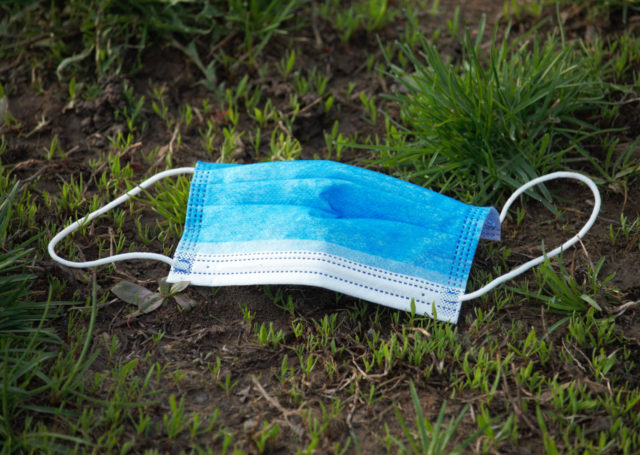
- Get Educated ♻❄️📚
Listen to How to Save a Planet for meaningful discussion and tips — most of which involve the unsexy-yet-very-effective world of policy. Warm Regards and Outside/In are also worth a listen. If you’re more of a reader than a listener, find a copy of The Sixth Extinction and All We Can Save.
- Stay Updated ❄️📚
With so many things battling for our attention — though fewer now that we have a reasonably competent president again — it can be easy to lose track of every last proposed change. Groups like Interreligious Eco-Justice Network and Sierra Club can help with that, as they publish information about Connecticut bills. (To learn about national campaigns, go here)
- Make choices based on credible information ♻❄️📚
And demand politicians do the same. Last year, Gov. Lamont’s “pause” on the plastic bag ban during Covid-19 created immediately noticeable impacts, which remain. Within days, plastic bag litter re-emerged in the gutter, in trees, in ponds, everywhere. And why? Because retailers used the pandemic as an excuse, saying they felt uncomfortable touching patrons’ cloth bags. . . even though we knew early on that the virus could sit on plastic much longer than porous surfaces. Months later we would learn that surface transmission was rare, and it was the person-to-person transmission we had to worry about, but like I said, even without that information, we knew that cloth and paper were better choices than plastic. Don’t be afraid to tell people to wait just a hot minute, and also, bring your own bags. Pro Tip: If you’re looking to limit your impulse purchases, don’t buy anything that can’t fit in the bags you brought with you. This works extra well if you walked or took the bus, though if you get a little grocery cart, you can tote more.
- Get Vaccinated ❄️🌈💧
The health benefits are obvious, but meditate for a moment on medical waste. Obviously, if you need medical treatment, you go get it, but if you can avoid it, why wouldn’t you? One or two vax shots creates much less waste than does a hospital stay.
Beg, Borrow, Steal 🌈
Maybe the last year got you rethinking your consumer habits. Even as in-person shopping becomes less of a health risk, this is still a chance to think about purchases more carefully. Do you need it? Do you already have it but forgot you acquired one already? Go clean your messy house and find that thing! Could something else work in its place? Can you borrow it instead? See if a neighbor is seeking to get rid of something that you want or need. Does that sound hard? Dare to ask for things.
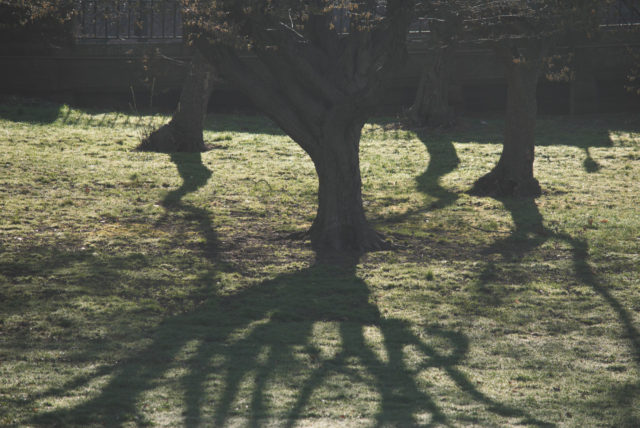
- Expand the Bottle Bill 🌍❄️🌈🌲☎️
This is not a regressive tax. This does not hurt poor people. I know those false claims are out there, so let’s get real for a minute. It’s fascinating how the equity complaints arise selectively. We see it here. We saw it in recent years with the plastic bag fees. We see it with tolls. If it’s not lobbyists exploiting poor people in an attempt to maintain the status quo from which those industries benefit, then it’s middle- or upper class folks who want to save a buck and are grasping at straws. Don’t worry, I’m sure we’ll hear someone explain how a plastic straw tax or ban would damage poor folks too.
Increasing the deposit from 5¢ to 10¢ gives a raise to the folks who gather bottles and cans now, who pick through trash cans removing improperly disposed materials so that they can be redeemed at a reverse vending machine. This bill, if adopted, would motivate people to salvage a wider range of recyclable materials. All those nips you see in the gutter, cluttering up storm drains, and scattered in parks? When those become money, they won’t be left around as litter. At least not in economically disadvantaged areas where a nickel or a dime do mean something to someone. No, you don’t need a car to return them. You can see folks taking huge bundles of cans and bottles for redemption now; they bring them on the bus, balance them on a bicycle, or load them into carts. And one more thing: this bill would require all medium or larger-sized retail stores to have a few reverse vending machines (bottle and can machines). This would make it even easier for folks who are car-free to return empties, as the ubiquitous dollar stores and drug stores would finally have to take some responsibility for the crap (energy drinks, sodas, etc) they sell. Contact your legislators to support a bill that has environment and health benefits, and encourages beautification because people don’t just leave money on the ground.
- Wash Clothes in Cold Water ♻❄️
And yes, you can still do this when the laundry includes cloth masks. The CDC suggests using soap/detergent and whatever the recommended water temp is for the rest of that load.
- Cleaning House? ♻❄️
Figure out the best way to dispose of items. RecycleCT can tell you the preferred method of disposal in this state. Although “wishful recycling” may have the best of intentions, it can be hazardous or clog machines at the facilities, so stop and look things up if you aren’t sure what goes in the blue bins. Plastic bags are technically recyclable, but should be taken back to stores, not placed in your blue bin. Better to avoid getting those bags in the first place. Single-use masks and gloves go in the trash — not the recycling bin, and sure as hell not the side of the road, though really, what’s with the single-use gear? PPE pollution is widespread.
- Join or Start a Green Committee at Work 🌍🌈💧🌻☎️
It’s great to recycle, compost, and all that on your own, but we need to be thinking far beyond ourselves. Is your workplace still printing documents as a default instead of when really needed? What actually happens with the materials that make it into the recycling bins there? Here’s a guide if you’re in the position of starting a sustainability team.
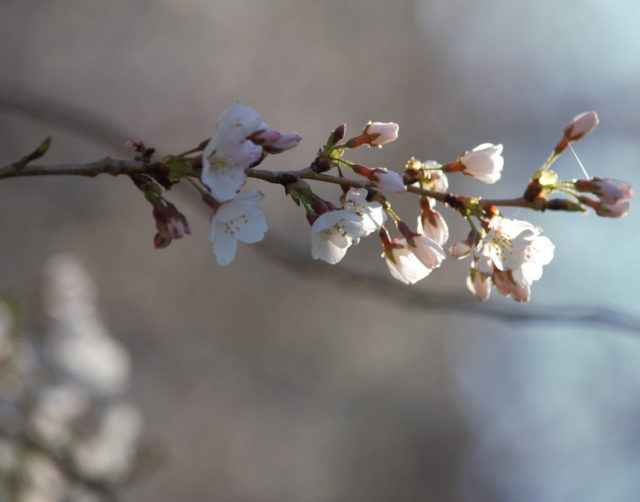
- Bloom Where You Are Planted 🌍🌈💧🌻☎️
Help create a community garden at your workplace or place of worship. This gives people the chance to grow their own food and flowers while being in community for socializing, organizing, and getting advice — useful for those who have no farming background. When in-person events resume, this opens up local and fresh sources for potluck salads, pasta sauces, and more. This is ideal for people who like the idea of gardens and maybe aren’t so good at that, but can handle project management.
- Eat Less Meat 🌍 ❄️💧
If you need convincing, treat yourself to lunch at Fire & Spice. It’s vegan and does not lack in flavor or nutrients, and it’s filling. Seriously, it’s not hard to do and it never requires eating faux meat products.
- Press For Agriculture Reforms 🌍❄️🌈🌲📚☎️
Eating less meat reduces demand, but at the same time, many of the problems associated with animal and land exploitation require policy changes. Learn about this and then write/call/harangue your legislators.
- Bulk Up ♻❄️
Tend to eat one type of food often? Check out the bulk bins in your grocery store. If you know you make rice and beans every week, it makes no sense to only purchase small packages. There is even an app to help you find stores with bulk bins in your area. Don’t assume that the pandemic has shut down bulk purchasing as an option; there are places in state that have figured out how to make it work.
- Cut Waste by Learning How to Cook ♻❄️🌈💧📚
I can’t in good conscience set a person up on dates with anyone else I know if I find out that this grown ass adult is unable to cook. It’s a simple survival skill. It’s also one that means creating less waste because your trash bin isn’t filled with ramen wrappers and take-out containers. So what if you grew up feral? Go to the library and borrow a cookbook or watch some YouTube videos or enlist a patient friend to teach you a few things. It’s actually not time saving to grab food from a drive-thru several days a week instead of batch cooking and reheating throughout the week.
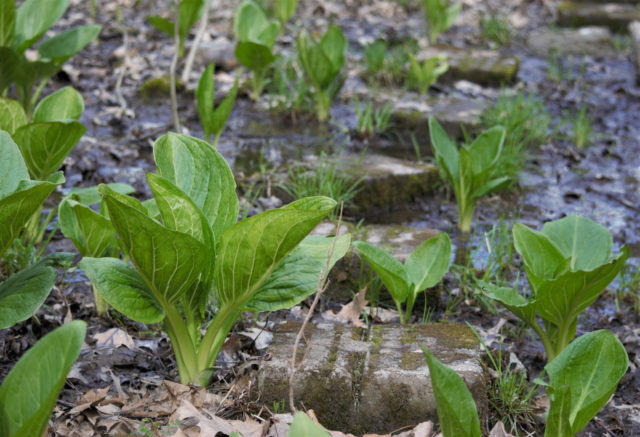
- Tossers Should Pay More ❄️🌈🌲☎️
Trash Day is a challenge for me, because I want to be gracious and understanding, but I can’t fathom how some homes have overflowing cans week-after-week. The amount can’t be explained as “they’re just doing some Spring cleaning” or “they must have had guests for the holiday.” It’s appalling. Some think the solution is to give them larger or more trash cans. No, no, and no. We need better education for residents — home-owners and tenants — when it comes to waste management. Equally educational — and more immediately effective– would be a change of policy guaranteed to be unpopular, but so what. Pay-as-you-throw makes sense. Contact your legislators to support S.B. 1037 — unit-based pricing.
- Compost ♻❄️💧🌻
One way to reduce what goes in the trash can — besides buying less and recycling more — is composting. The circle of life. I’m not even a little sorry you’ll be singing that song for the rest of the week. In an urban area, outdoor bins can still work, but indoor worm bins might be preferable depending on your space and if your neighborhood has a rodent situation. Not handy enough to build your own bin? There are ones you can buy. If you have a little extra change and would rather not play with your food scraps, you can outsource it to Blue Earth Compost. They’ve started offering free trials, so if you’re on the fence and not sure compost collection would work for you, you’re not locked into a contract. (There’s a composter sale on April 24, 2021)
- Find Out Who Minimizes Food Waste. . . And Support Them ❄️🌈
Which restaurants and cafeterias compost their scraps? Are they donating unused food to shelters, etc? Prioritize support for establishments that don’t just toss leftovers in the dumpster. Think back to early in the pandemic when everything got shuttered. Which restaurants donated meals to first responders, medical professionals, and other essential workers? That’s food diverted from the landfill.

- Parks For People ❄️🌈💧🌲☎️
For a minute during the pandemic, all of Hartford’s major parks were adjusted so that space usually dominated by cars was reserved for people. This provided a level surface on which people could walk or roll, while able to maintain healthy physical distance from others, without the threat of being struck by someone’s vehicle. This has not, in all cases, remained the case. Besides making this safer in the immediate sense, opening park roads up for people only discourages idling on spaces people go to enjoy nature. There are absolutely ways to maintain access to handicapped parking while otherwise banning motor vehicles from parks. Let’s get on that. Drop City Council and the Mayor a line.
- Do Nothing ❄️💧
There are faith traditions that reserve one day each week for rest. A byproduct of this rest is the use of fewer resources. The Green Sabbath project has ideas about how to do this, and can be easily adapted regardless of one’s spiritual practices, or absence of.
- Do A Tempestry (Or Similar) Project ❄️💧📚🌻
Think of more human ways to communicate than relying on charts and graphs alone. Make a climate change blanket. See what others are doing. If you’re less of a creator and more of an appreciator, check out the Earth Day Art exhibit in Bushnell Park on April 24, 2021, from 12-4 PM by the Pump House.
- Get outside! ♻❄️💧
When we care about something, we are more inclined to do what we can to assist. It’s not an abstraction. Spend time enjoying the outdoors. Visit Connecticut’s State Parks and Forests, the many land trusts, or even your local town or city parks. Remind yourself why our environment (our habitat) is worth caring about. Last year I wrote a post about how to enjoy nature without running into many, or any, other people and even once we’re all vaccinated, this may be handy for readers who would prefer solitude over noise and crowds.
- Do some citizen science ♻❄️🌈
This can include taking part in an Earth Day Backyard Bioblitz. It could mean measuring noise pollution, observing trees, tracking pollen, and more.

- Don’t Spray It 🌍❄️🌈🌲☎️
Growing up in the “Save the Rainforest” era, I used to find it amazing that people ever thought certain things were a good idea. DDT. CFCs. Lead paint. Asbestos. It just seemed so obvious. You know…how could people be so collectively idiotic? But here we are, begging people for the life of the planet to stop already with the fossil fuels. Anyway, there is a chance to change policy that would distance ourselves from one stupid and dangerous practice: using PFAS during firefighter training. You can let your people know that they should get behind S.B. 837.
- Depave The Planet ❄️🌲🌻
The satellite view on Google Maps reveals all kinds of sins. Take a look along the Park River from where it begins in the Bloomfield/West Hartford area, to Farmington Avenue. Look at how many surface lots people created right next to the river. What were people thinking? What are we thinking by allowing this to continue? Contact the businesses and organizations that own these lots — GIS can help you — and ask that they fix the problem. They should be depaving what is closest to the river.
- No New Fossil Fuel Plants 🌍❄️🌈🌲☎️
Building new gas-fired plants in this age is as reckless as building new highways or parking lots. We could’ve gently tapped the brakes over the last forty years, but we didn’t. Too bad, so sad. Let your legislators know that it’s time to stop denying climate change. If you feel like referring to a bill, it’s S.B. 718.
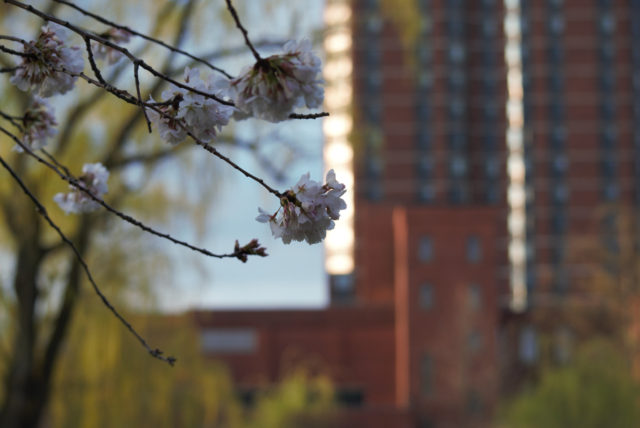
- Plant a tree ♻❄️🌈💧🌻
Plant many. Can’t do this in your own yard? Donate to an organization like Arbor Day Foundation or KNOX Hartford. Join (or donate to) a Friends of group that is adding trees to Hartford’s parks and cemeteries. Help educate friends and neighbors about the benefits of trees. Help people to understand that trees grow to different heights, and it’s possible to plant smaller ones that are unlikely to do damage to a house should there be a windstorm.
- 99 Fewer Red Balloons 🌍❄️🌈🌲☎️
Let’s get in the time machine for a moment, to the time of 99 Red Balloons. For reasons I can’t recall, our school had a balloon release. Even then, I thought this was bad. Where would the balloons go? Aren’t they going to get stuck in trees? What happens if a bird eats one? But, our school was not getting everything wrong. Kids opting to buy a hot meal were served it on a hard, plastic tray. These would get rinsed down and reused. Several decades went by and at some point, the norm became serving kids food on single-use trays. H.B. 6502, if passed, would require schools to phase out trays made from expanded polystyrene. As a reminder of what is possible, there’s at least one restaurant in downtown that uses metal trays while serving large numbers of people each day. If they can handle that, why can’t a school cafeteria? This bill, among other things, would also limit the number of balloon releases. . . and you know I had no hand in authoring it because I would have listed zero as the allowable number.
- Beyond Plastic Straws ♻❄️
If you’ve already switched away from one-use straws and bags, think about those other single-use products you have control over: diapers and menstrual products. With the possible move away from single-use produce bags, if you have not already found other solutions (no bag, reusable ones), now’s the time to plan ahead.
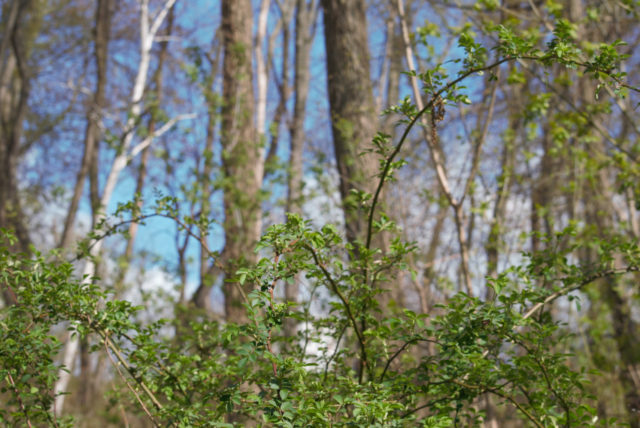
I could keep going. But climate solutions don’t look like being fearful and frozen. They don’t look like refusal to change in meaningful ways. They don’t look like a tech bro’s dream.
A thought: ” if your ideals do not require sacrifice, then they’re probably not very significant. Obviously, not everyone has the same capacity to contribute. The more wealth, power and knowledge you have, the greater your sacrifices should be.”
Even that sentiment, I would reframe. It’s not a sacrifice to ensure we have our natural habitat in place for a long time to come– it’s an honor to preserve it.
But the more you have — and if you’re making anything that puts you into a middle class tax bracket, you have a lot, you have more than you need — the more you are obligated to give.
Earth Day 2021: Action
We’ve been in a climate emergency.
Most of 2020 and all of 2021, so far, has taught us what it looks like to act in another emergency. People did not and are not getting it right all of the time, but it’s undeniable that there has been action. The mobilization to get a vaccine was amazing — within one year of the first documented Covid-19 transmission, a vaccine became available to the public. Quickly, scientists developed others. Even as anti-vaxxers and “the vaccine hesitant” are dragging their feet when it comes to ensuring the health of their families and the community, there is progress. All you need to do is look at the reduction in the death rate. Yet, there is bitterness when we consider how many lives could have been saved had political leaders acted sooner, letting science — not the selfishness of ego — guide their decisions.
We’re in, and have been in, a climate emergency. This is not a cute moment of hugging trees while burning incense. It’s a matter of sustaining the planet, because without a habitat, human life is endangered.
As Abigail Dillen puts it in “Litigating in a Time of Crisis,” — published in All We Can Save — “It’s a profound kind of entitlement to believe, despite all evidence to the contrary, that we can go on living as we are.”
As with Covid, there are technological solutions (vaccines) and natural ones (isolation, physical distance, basic hygiene); technology alone is not a silver bullet solution, even if those benefitting financially would claim them to be. Just as we can’t bring back those who died preventable deaths from Covid-19, we can’t fully repair the damage to the planet; however, we absolutely have the capacity to act so that the planet continues to sustain human life.
To save you some time, I’ve labeled each suggestion so that you can choose ideas that best fit where you’re at, either in level of commitment or personality:
🌍 = Large impact, most bang for your buck.
❄️ = Individual
🌈 = In community
💧 = Nurturing
🌲 = Fighting
📚 = Learning
🌻 = Creating
☎️ = Organizing
♻ = Idea recycled from last year
Again and again and again people want to know what actions they can take as an individual that will have the most impact when it comes to reducing carbon emissions. The answer is not switch from plastic straws (but you should do that too). It’s the things people often don’t want to hear and will make up a million excuses why they won’t make these changes: eat a plant-based diet, avoid air travel, ditch the car, and have fewer children. What’s interesting is how all of those actions require going against the grain in a very particular way: dismissing outward status symbols.
The middle-of-the-road approach is to suggest that a household limit itself to one car; the badass radical approach is to challenge needing even that much. Reducing automobile dependence also saves money. Sit down and do the math. How much does it cost to legally own and operate a car every year in Connecticut? Then, see how much it costs to get around by bicycle or on foot, or by bus and train. Even if you rent a car every now and then, the savings are substantial — particularly for those of us who are working class.
Our car-centric culture is not healthy for people or the planet. Begin to fix this by learning about how our current policy is problematic; then work to change it. Transportation, housing, environment, economy — these issues are all linked. You will see how “maintaining our way of life” — a racist dog whistle used in a few very racially segregated suburbs and exurbs — has been used to block both affordable housing and stall or minimize public transportation. Luckily, problems created by humans can also be solved by humans. If you can address multiple problems at once, why wouldn’t you?
Demand your community become more livable by putting people first. Walkable cities have wide sidewalks, robust transit, and safe and efficient pedestrian crossings. How do you get these things? Start by using 311. Plug info into the Bike Lane Uprising app. Participate in the monthly Complete Streets meeting. Contact your elected officials. Get creative if you feel unheard. Are they giving you bullshit excuses for why something can’t happen? Talk back. It’s amazing the results you can get if even a few people try. Looking for a place to start? Contact you legislators in support of H.B. 5429, and if you have a #BlackLivesMatter sign on your lawn, you should absolutely be stepping up to support a measure that would also reduce traffic stops while making the streets safer for pedestrians and cyclists.
No more excuses! From Memorial Day through Labor Day this year, it will be free to take CTtransit anywhere in Connecticut on the weekend, the Monday after Independence Day, and those Monday holidays bookending this public transit bonanza. Want to take a hike? Take the bus. Want to take your newly vaccinated self to visit friends? Take the bus. Have you been bus-curious but afraid to try for the first time while on a tight schedule? Try it on the weekend. Thinking of ditching your car but wondering “how will I get groceries” — take the bus. It’s amazing how many things we’ve been socialized to believe are impossible, when in fact they are simply not that hard.
But then advocate to make roads safer. Why? Two reasons: (1) the people who are already biking, and (2) the people who would ride if they felt like it wouldn’t kill them. There are various organizations out there already doing the work — no need to remake the wheel. Bike Walk Connecticut is the statewide organization. Safe Streets Coalition of New Haven has been doing impressive work down that way. As Project Drawdown explains, “additional benefits of cycling include improved health and lower health care expenses.” This holds true for e-bikes as well, because exercise is still required to get them to move. Again, if you can solve multiple problems at once, why wouldn’t you?
Politicians and some organizations are resisting extending CHEAPR incentives to cover e-bikes, and that’s because. . . well, they’d have to be real honest about why that is, but I have guesses. One guess is that they do not understand poverty. Another guess is they aren’t paying attention to what experts have to say. Another is that they see bikes as toys, not tools. But e-bikes should not be viewed as just upgrades to analog bikes; they can and should often be viewed as replacements for cars. Broaden your perspective and then ask your reps and environment orgs to get with the program. Feel free calling folks out for pushing a scarcity model: their campaign is not going to lose if they make it more inclusive. By the way, France is swapping out fossil fueled cars for e-bikes.
As the late Jim Pagels explains, “subsidizing EVs is an odd policy stance, since negative externalities (which EVs most certainly produce in enormous quantities) should be taxed, not subsidized.” If you want to ruffle some feathers, suggest to legislators that this is the better route. Feeling judged? Too damn bad. This is about habitat preservation.
Hartford now has electric scooter rentals, which is a good solution for some of us who aren’t yet fully vaccinated and want to stay off buses, but need to go longer distances — like to inconveniently located vaccination clinics.
…as much as possible. Got a choice between New England apples and Washington apples? Choose those that have not traveled so far. Grow your own herbs and vegetables. There are community garden plots you can rent for a season — convenient for those who have no yard, have a yard but aren’t allowed to modify it, or whose soil is only suitable for growing things you won’t be putting in your mouth. KNOX is the main organization that runs community gardens in Hartford, but there are others. Talk to your neighbors to find out other options.
If inclined to donate money or food to large distribution programs, consider something more homegrown, more accessible instead. Hartford has a number of 24/7 help yourself pantries. These do not require a person have a car to get to one of those exclusive “drive-thru only” food distribution events– you know, the ones where pedestrians are not served and would struggle to reach anyway. These 24/7 pantries do not require a person go across town to stand in a line because of a time limited distribution scheme. Little Free Pantries (or whatever you feel like calling them) are sites where you can drop off food whenever. Consider leaving surplus from your garden. While the traditional pantries typically only accept non-perishable foods, these 24/7 pantries receive so much foot traffic that there’s more flexibility, and some have coolers or refrigeration systems. See this map to learn where these are in Hartford — look for the noodle bowl emoji.
While the MDC maintains its recreation areas well, they’re sketchy AF as far as I’m concerned after getting into the water privatization/bottling business. Gross. A rain barrel collects water that falls from the sky so you can water your garden without paying anything to the water company. (There’s a local rain barrel sale on April 24)
Keney Park Sustainability Project, KNOX, the regional Connecticut River Conservancy, and Sunrise Movement are a few organizations/places with upcoming opportunities to give time and labor. Litter cleanups are instant gratification and a good workout. They can be done solo or with others. But don’t forget to go next level and work on not just preventing litter but addressing our disposable culture. We’re hearing a lot about the “impending crisis” — yes, people are actually calling it that — because the incinerator in Hartford is being shut down in 2022. Crisis for whom? For the folks from dozens of Connecticut towns who could go about their day, not thinking where their garbage ended up after it left their barrels, while Hartford residents were inhaling the burned diapers, batteries, plastic, and whatever else people decided to toss? This is an opportunity to go hard. Change the policy, change the policy, change the policy. Contact legislators to show support for H.B. 6386, which would extend producer responsibility for smoke detectors, tires, and gas cylinders.
Listen to How to Save a Planet for meaningful discussion and tips — most of which involve the unsexy-yet-very-effective world of policy. Warm Regards and Outside/In are also worth a listen. If you’re more of a reader than a listener, find a copy of The Sixth Extinction and All We Can Save.
With so many things battling for our attention — though fewer now that we have a reasonably competent president again — it can be easy to lose track of every last proposed change. Groups like Interreligious Eco-Justice Network and Sierra Club can help with that, as they publish information about Connecticut bills. (To learn about national campaigns, go here)
And demand politicians do the same. Last year, Gov. Lamont’s “pause” on the plastic bag ban during Covid-19 created immediately noticeable impacts, which remain. Within days, plastic bag litter re-emerged in the gutter, in trees, in ponds, everywhere. And why? Because retailers used the pandemic as an excuse, saying they felt uncomfortable touching patrons’ cloth bags. . . even though we knew early on that the virus could sit on plastic much longer than porous surfaces. Months later we would learn that surface transmission was rare, and it was the person-to-person transmission we had to worry about, but like I said, even without that information, we knew that cloth and paper were better choices than plastic. Don’t be afraid to tell people to wait just a hot minute, and also, bring your own bags. Pro Tip: If you’re looking to limit your impulse purchases, don’t buy anything that can’t fit in the bags you brought with you. This works extra well if you walked or took the bus, though if you get a little grocery cart, you can tote more.
The health benefits are obvious, but meditate for a moment on medical waste. Obviously, if you need medical treatment, you go get it, but if you can avoid it, why wouldn’t you? One or two vax shots creates much less waste than does a hospital stay.
Beg,Borrow, Steal🌈Maybe the last year got you rethinking your consumer habits. Even as in-person shopping becomes less of a health risk, this is still a chance to think about purchases more carefully. Do you need it? Do you already have it but forgot you acquired one already? Go clean your messy house and find that thing! Could something else work in its place? Can you borrow it instead? See if a neighbor is seeking to get rid of something that you want or need. Does that sound hard? Dare to ask for things.
This is not a regressive tax. This does not hurt poor people. I know those false claims are out there, so let’s get real for a minute. It’s fascinating how the equity complaints arise selectively. We see it here. We saw it in recent years with the plastic bag fees. We see it with tolls. If it’s not lobbyists exploiting poor people in an attempt to maintain the status quo from which those industries benefit, then it’s middle- or upper class folks who want to save a buck and are grasping at straws. Don’t worry, I’m sure we’ll hear someone explain how a plastic straw tax or ban would damage poor folks too.
Increasing the deposit from 5¢ to 10¢ gives a raise to the folks who gather bottles and cans now, who pick through trash cans removing improperly disposed materials so that they can be redeemed at a reverse vending machine. This bill, if adopted, would motivate people to salvage a wider range of recyclable materials. All those nips you see in the gutter, cluttering up storm drains, and scattered in parks? When those become money, they won’t be left around as litter. At least not in economically disadvantaged areas where a nickel or a dime do mean something to someone. No, you don’t need a car to return them. You can see folks taking huge bundles of cans and bottles for redemption now; they bring them on the bus, balance them on a bicycle, or load them into carts. And one more thing: this bill would require all medium or larger-sized retail stores to have a few reverse vending machines (bottle and can machines). This would make it even easier for folks who are car-free to return empties, as the ubiquitous dollar stores and drug stores would finally have to take some responsibility for the crap (energy drinks, sodas, etc) they sell. Contact your legislators to support a bill that has environment and health benefits, and encourages beautification because people don’t just leave money on the ground.
And yes, you can still do this when the laundry includes cloth masks. The CDC suggests using soap/detergent and whatever the recommended water temp is for the rest of that load.
Figure out the best way to dispose of items. RecycleCT can tell you the preferred method of disposal in this state. Although “wishful recycling” may have the best of intentions, it can be hazardous or clog machines at the facilities, so stop and look things up if you aren’t sure what goes in the blue bins. Plastic bags are technically recyclable, but should be taken back to stores, not placed in your blue bin. Better to avoid getting those bags in the first place. Single-use masks and gloves go in the trash — not the recycling bin, and sure as hell not the side of the road, though really, what’s with the single-use gear? PPE pollution is widespread.
It’s great to recycle, compost, and all that on your own, but we need to be thinking far beyond ourselves. Is your workplace still printing documents as a default instead of when really needed? What actually happens with the materials that make it into the recycling bins there? Here’s a guide if you’re in the position of starting a sustainability team.
Help create a community garden at your workplace or place of worship. This gives people the chance to grow their own food and flowers while being in community for socializing, organizing, and getting advice — useful for those who have no farming background. When in-person events resume, this opens up local and fresh sources for potluck salads, pasta sauces, and more. This is ideal for people who like the idea of gardens and maybe aren’t so good at that, but can handle project management.
If you need convincing, treat yourself to lunch at Fire & Spice. It’s vegan and does not lack in flavor or nutrients, and it’s filling. Seriously, it’s not hard to do and it never requires eating faux meat products.
Eating less meat reduces demand, but at the same time, many of the problems associated with animal and land exploitation require policy changes. Learn about this and then write/call/harangue your legislators.
Tend to eat one type of food often? Check out the bulk bins in your grocery store. If you know you make rice and beans every week, it makes no sense to only purchase small packages. There is even an app to help you find stores with bulk bins in your area. Don’t assume that the pandemic has shut down bulk purchasing as an option; there are places in state that have figured out how to make it work.
I can’t in good conscience set a person up on dates with anyone else I know if I find out that this grown ass adult is unable to cook. It’s a simple survival skill. It’s also one that means creating less waste because your trash bin isn’t filled with ramen wrappers and take-out containers. So what if you grew up feral? Go to the library and borrow a cookbook or watch some YouTube videos or enlist a patient friend to teach you a few things. It’s actually not time saving to grab food from a drive-thru several days a week instead of batch cooking and reheating throughout the week.
Trash Day is a challenge for me, because I want to be gracious and understanding, but I can’t fathom how some homes have overflowing cans week-after-week. The amount can’t be explained as “they’re just doing some Spring cleaning” or “they must have had guests for the holiday.” It’s appalling. Some think the solution is to give them larger or more trash cans. No, no, and no. We need better education for residents — home-owners and tenants — when it comes to waste management. Equally educational — and more immediately effective– would be a change of policy guaranteed to be unpopular, but so what. Pay-as-you-throw makes sense. Contact your legislators to support S.B. 1037 — unit-based pricing.
One way to reduce what goes in the trash can — besides buying less and recycling more — is composting. The circle of life. I’m not even a little sorry you’ll be singing that song for the rest of the week. In an urban area, outdoor bins can still work, but indoor worm bins might be preferable depending on your space and if your neighborhood has a rodent situation. Not handy enough to build your own bin? There are ones you can buy. If you have a little extra change and would rather not play with your food scraps, you can outsource it to Blue Earth Compost. They’ve started offering free trials, so if you’re on the fence and not sure compost collection would work for you, you’re not locked into a contract. (There’s a composter sale on April 24, 2021)
Which restaurants and cafeterias compost their scraps? Are they donating unused food to shelters, etc? Prioritize support for establishments that don’t just toss leftovers in the dumpster. Think back to early in the pandemic when everything got shuttered. Which restaurants donated meals to first responders, medical professionals, and other essential workers? That’s food diverted from the landfill.
For a minute during the pandemic, all of Hartford’s major parks were adjusted so that space usually dominated by cars was reserved for people. This provided a level surface on which people could walk or roll, while able to maintain healthy physical distance from others, without the threat of being struck by someone’s vehicle. This has not, in all cases, remained the case. Besides making this safer in the immediate sense, opening park roads up for people only discourages idling on spaces people go to enjoy nature. There are absolutely ways to maintain access to handicapped parking while otherwise banning motor vehicles from parks. Let’s get on that. Drop City Council and the Mayor a line.
There are faith traditions that reserve one day each week for rest. A byproduct of this rest is the use of fewer resources. The Green Sabbath project has ideas about how to do this, and can be easily adapted regardless of one’s spiritual practices, or absence of.
Think of more human ways to communicate than relying on charts and graphs alone. Make a climate change blanket. See what others are doing. If you’re less of a creator and more of an appreciator, check out the Earth Day Art exhibit in Bushnell Park on April 24, 2021, from 12-4 PM by the Pump House.
When we care about something, we are more inclined to do what we can to assist. It’s not an abstraction. Spend time enjoying the outdoors. Visit Connecticut’s State Parks and Forests, the many land trusts, or even your local town or city parks. Remind yourself why our environment (our habitat) is worth caring about. Last year I wrote a post about how to enjoy nature without running into many, or any, other people and even once we’re all vaccinated, this may be handy for readers who would prefer solitude over noise and crowds.
This can include taking part in an Earth Day Backyard Bioblitz. It could mean measuring noise pollution, observing trees, tracking pollen, and more.
Growing up in the “Save the Rainforest” era, I used to find it amazing that people ever thought certain things were a good idea. DDT. CFCs. Lead paint. Asbestos. It just seemed so obvious. You know…how could people be so collectively idiotic? But here we are, begging people for the life of the planet to stop already with the fossil fuels. Anyway, there is a chance to change policy that would distance ourselves from one stupid and dangerous practice: using PFAS during firefighter training. You can let your people know that they should get behind S.B. 837.
The satellite view on Google Maps reveals all kinds of sins. Take a look along the Park River from where it begins in the Bloomfield/West Hartford area, to Farmington Avenue. Look at how many surface lots people created right next to the river. What were people thinking? What are we thinking by allowing this to continue? Contact the businesses and organizations that own these lots — GIS can help you — and ask that they fix the problem. They should be depaving what is closest to the river.
Building new gas-fired plants in this age is as reckless as building new highways or parking lots. We could’ve gently tapped the brakes over the last forty years, but we didn’t. Too bad, so sad. Let your legislators know that it’s time to stop denying climate change. If you feel like referring to a bill, it’s S.B. 718.
Plant many. Can’t do this in your own yard? Donate to an organization like Arbor Day Foundation or KNOX Hartford. Join (or donate to) a Friends of group that is adding trees to Hartford’s parks and cemeteries. Help educate friends and neighbors about the benefits of trees. Help people to understand that trees grow to different heights, and it’s possible to plant smaller ones that are unlikely to do damage to a house should there be a windstorm.
Let’s get in the time machine for a moment, to the time of 99 Red Balloons. For reasons I can’t recall, our school had a balloon release. Even then, I thought this was bad. Where would the balloons go? Aren’t they going to get stuck in trees? What happens if a bird eats one? But, our school was not getting everything wrong. Kids opting to buy a hot meal were served it on a hard, plastic tray. These would get rinsed down and reused. Several decades went by and at some point, the norm became serving kids food on single-use trays. H.B. 6502, if passed, would require schools to phase out trays made from expanded polystyrene. As a reminder of what is possible, there’s at least one restaurant in downtown that uses metal trays while serving large numbers of people each day. If they can handle that, why can’t a school cafeteria? This bill, among other things, would also limit the number of balloon releases. . . and you know I had no hand in authoring it because I would have listed zero as the allowable number.
If you’ve already switched away from one-use straws and bags, think about those other single-use products you have control over: diapers and menstrual products. With the possible move away from single-use produce bags, if you have not already found other solutions (no bag, reusable ones), now’s the time to plan ahead.
I could keep going. But climate solutions don’t look like being fearful and frozen. They don’t look like refusal to change in meaningful ways. They don’t look like a tech bro’s dream.
A thought: ” if your ideals do not require sacrifice, then they’re probably not very significant. Obviously, not everyone has the same capacity to contribute. The more wealth, power and knowledge you have, the greater your sacrifices should be.”
Even that sentiment, I would reframe. It’s not a sacrifice to ensure we have our natural habitat in place for a long time to come– it’s an honor to preserve it.
But the more you have — and if you’re making anything that puts you into a middle class tax bracket, you have a lot, you have more than you need — the more you are obligated to give.
Related Posts
A Wreath for Emmett Till: One Book One Hartford
DOT Unwilling to Change Busway, Attitude
Looks Like Winterfest